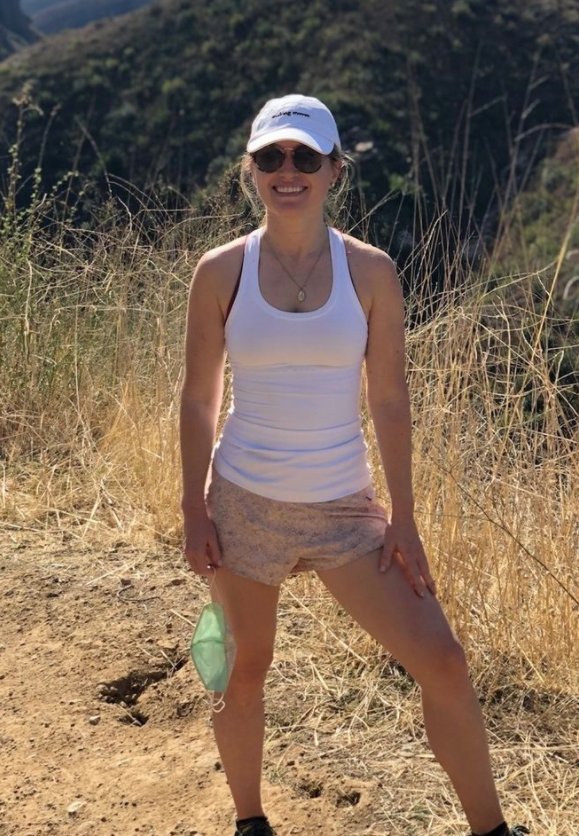

Get in the KNOW
on LA Startups & Tech
XMeet the 10 Startups in Techstars' 2021 Space Accelerator Class
Samson Amore
Samson Amore is a reporter for dot.LA. He holds a degree in journalism from Emerson College. Send tips or pitches to samsonamore@dot.la and find him on Twitter @Samsonamore.
Techstars' Space Accelerator took off this week with its third class of space-related companies that make everything from AI-powered smart cameras to technology that can anticipate celestial collisions.
The 10 startups selected for the competitive four-month program are based across the U.S. and Australia and will work with Techstars on a mostly remote basis.
All are developing technology with multiple uses in space and will receive a $120,000 investment in addition to access to Techstars' expanding network of mentors.
That network includes aerospace experts at the Pasadena-based NASA Jet Propulsion Laboratory. Participating companies include Lockheed Martin, Arrow Electronics, SAIC and Israel Aerospace Industries.
"Alumni from our previous cohorts are launching space systems and infrastructure, raising tens of millions of dollars in venture capital as well as receiving lucrative contracts from both government and commercial customers," said Jonathan Fentzke, the program's managing director.
The program will culminate in a demo day on Sept. 2 where the startups will show off their work in hopes of winning potential investors or clients.
Fentzke noted that while no companies in this year's cohort are based in LA, Techstars still has partners mentors and investors based here.
"As it turns out the four companies in California out of 10 are not based in L.A. today, but will likely have a presence over time," Fentzke told dot.LA.
Here's a look at the 10 companies selected for this year's Techstars Space Accelerator.
Hyperkelp
LOCATION: San Clemente, Ca.
CEO: Graeme Rae
Founded by maritime engineer Dr. Graeme Rae, Hyperkelp is building buoys that aren't your average fishing bobber. Its tech can collect and transmit data about the surrounding ocean and incoming payloads from space. The company says its goal is to create a network of the buoys around the ocean to help aerospace launch companies stream data from anywhere around the world.
Hyperspec.ai
LOCATION: San Francisco, CA. and Tel Aviv, Israel
CEO: Ohad Levi
Hyperspec.ai makes smart cameras that run on artificial intelligence. The company's CEO Sravan Puttagunta previously worked in HP's engineering department. In a nutshell, Hyperspec's cameras are made to create accurate mapping and object tracking in real time, with the goal of being used on self-driving cars and other autonomous vehicles.
Nicslab
LOCATION: Sydney, Australia
CEO: Dr. Andri Mahendra
Nicslab develops technology called the "source measurement system" that uses quantum computing to help organizations optimize their internet speeds and make them faster. Its current clients include the University of Oxford, HP Labs and Mitsubishi Electric.
Pierce Aerospace
LOCATION: Indianapolis, In.
CEO: Aaron Pierce
Pierce Aerospace makes software that helps autonomous drones identify objects and payloads. It argues that this software is critical to the development of the drone industry -- after all, it can be pretty scary if a drone goes rogue because it can't see where it's going. In 2019 the company received a roughly $50,000 grant from the U.S. Department of Defense to continue work on its flagship product, the Flight Portal ID system, which the DoD wants to use on its Unmanned Aircraft Systems.
Pixspan
LOCATION: Rockville, MD.
CEO: Michael Rowny
Pixspan develops a system that lets large files be transferred from different storage locations (like hardware or the cloud) at rapid speeds -- sometimes up to 5 times faster than average, it reports. It's compatible with several app programming interfaces, the main one being Amazon Web Services.
QuSecure
LOCATION: San Mateo, Ca.
CEO: Dave Krauthamer
QuSecure is a security company that focuses on protecting government and corporate systems from hacks. Specifically, its software works to keep encrypted data from being stolen and decrypted by quantum computers, which can steal and read valuable information at rapid speed. Its customers include Google and Amazon.
SCOUT
LOCATION: Alexandria, Va.
CEO: Eric Ingram
Scout -- also known as Scout Space -- develops software that helps spacefaring companies visualize what's going on in the great beyond and avoid casualties, like crashes with other spacecraft, satellites or debris. The company was founded in 2019 and says its name is an acronym for helping Spacecraft Observe and Understand Things around them.
SeaSatellites
LOCATION: San Diego, CA.
CEO: Mike Flanigan
As the name suggests, SeaSatellites is building unmanned vessels that work as satellites for the ocean and have a wide array of potential uses, from environmental data collection to communications. Similar to their skyward counterparts, SeaSatellites' tech can be controlled from anywhere and are designed to carry payloads on long missions.
Xairos
LOCATION: Denver, CO.
CEO: David Mitlyng
This company's name is Greek to us -- literally. A nod to the Greek god of opportune time, Kairos, is an appropriate name for this startup using quantum mechanics to bring GPS-type technology to areas of the globe without internet access.
Thermexit
LOCATION: Boston, MA.
CEO: Katie Willgoos
Thermexit is the only company in this year's Space Accelerator cohort that's led by a woman. CEO Katie Willgoos joined the company in March and helps the company create and sell its main product, Theremexit Pads, which are tiny thermal sensing sticky pads that can be placed on circuit boards and inside computers.
Correction: An earlier version of this post stated this is Techstars' second space accelerator cohort. It's the accelerator's third such class. It also, misnamed the CEO of Hyperspec.ai.
From Your Site Articles
- Techstars Starburst Space Accelerator Demo Day is Wednesday ... ›
- New Techstars Anywhere Accelerator Class has LA Company - dot.LA ›
- Here is Techstars' Starburst Space Accelerator Class - dot.LA ›
- Event: Demo Day For The Long Beach Accelerator's 2nd Cohort - dot.LA ›
- Techstars Gears Up for Its 2021 Los Angeles Startup Showcase - dot.LA ›
- Kairos Ventures’ Alex Andrianopoulos on Investing in Academia - dot.LA ›
- These SoCal Startups Get Ahead of the Game Via Comcast’s Sports Tech Accelerator - dot.LA ›
- Long Beach Accelerator Set to Welcome Fourth Group of New Companies - dot.LA ›
- NASA’s Space Accelerator Program Lifts Off - dot.LA ›
Related Articles Around the Web
Samson Amore
Samson Amore is a reporter for dot.LA. He holds a degree in journalism from Emerson College. Send tips or pitches to samsonamore@dot.la and find him on Twitter @Samsonamore.
https://twitter.com/samsonamore
samsonamore@dot.la
Salt AI Secures $10M to Untangle Healthcare’s Toughest Workflows
09:22 AM | September 26, 2025
🔦 Spotlight
Hello Los Angeles,
Not every startup raise deserves the spotlight, but this week’s news from Salt AI is worth paying attention to. The LA based company just closed a $10 million round led by Morpheus Ventures with participation from Struck Capital, Marbruck Investments and CoreWeave. The goal is to expand what it calls “contextual AI,” and if it works, it could quietly change how some of the most complex corners of healthcare get untangled.
Healthcare is notorious for slow, clunky systems. Even the smallest workflow, like drug trial data, clinical documentation, or compliance reviews, can drag on for weeks because the tools were never built for speed. Salt AI is betting that the fix is not flashy consumer apps or billion parameter models, but something more practical: AI that slots directly into the day to day grind of life sciences. Their platform lets non technical teams visually build and deploy workflows that would normally take months of coding. Drag, drop, done.
It sounds simple, but the implications are not. Imagine a biopharma team testing a new drug, able to cut through compliance hurdles in days instead of months. Or clinical researchers spinning up experiments and seeing usable results in real time. Salt AI’s pitch is not about replacing scientists, it is about giving them back time in an industry where time can literally mean lives.
The new capital will help scale engineering, grow its customer footprint, and push further into healthcare and biopharma. But more importantly, it gives Salt AI the chance to prove that “contextual AI” is more than a buzzword. If they succeed, the company will not just chip away at bottlenecks, it could reshape how innovation itself moves through one of the world’s most heavily regulated and mission critical industries.
🤝 Venture Deals
LA Companies
- Bonsai Health raised $7M in a seed round led by Bonfire Ventures and Wonder Ventures. The Santa Monica based company builds an agentic AI platform that automates front office healthcare workflows, things like patient outreach, scheduling and clinical follow-ups, working behind the scenes to keep patients connected to care and reduce administrative burden. It plans to use the funding to accelerate its specialty AI agents, expand into new medical specialties, and scale its commercialization nationwide. - learn more
- Genstore raised a $10M Seed round led by Weimob, with participation from Lighthouse Founders’ Fund. The Los Angeles based startup is building an AI-native e-commerce platform that lets merchants launch and run online stores using conversational prompts, automating everything from product listings and copywriting to customer service. The funds will go toward accelerating product development, expanding into new markets, and refining features that simplify online commerce for small and midsized sellers. - learn more
- TransAstra secured a $5M investment to scale its asteroid capture technology in partnership with NASA. The company aims to advance systems that can snag and repurpose small bodies in space, contributing to sustainable space infrastructure and debris mitigation. With this funding, TransAstra will expand development, deepen its relationship with NASA, and accelerate deployment of its capture hardware. - learn more
LA Venture Funds
- Fika Ventures led a seed round investing in MaxHome, joining BBG Ventures, Four Acres and 1Sharpe Ventures. MaxHome is building an AI-native platform focused on automating real estate transaction coordination, the messy, manual work that slows deals. Fika backed the team because it sees a huge opportunity in streamlining broker workflows, reducing errors, and improving the experience for agents and homebuyers alike. - learn more
- MANTIS Ventures joined NEA, Sequoia, NVIDIA, J.P. Morgan and others in leading a $50M Series B for Factory, valuing the AI coding company at $300 million. Factory builds “droids,” AI agents that automate software development tasks across environments, and claims their platform now tops the Terminal Bench benchmark. With this capital, Factory aims to expand enterprise adoption, deepen integrations, and scale its engineering team globally. - learn more
- SafeHill (formerly Tacticly) announced a $2.6M pre-seed round led by Mucker Capital, with participation from Chingona Ventures, Techstars, Chicago Early Growth Ventures, The Source Groups, and others. The Chicago-based cybersecurity startup is launching from stealth with SecureIQ, a continuous Threat Exposure Management platform that blends AI-driven testing with human validation to help organizations find and shore up attack paths. The funding will be used to expand engineering, enhance AI-assisted ethical hacking, deepen enterprise partnerships, and broaden compliance and monitoring capabilities. - learn more
- Prototype Capital was among the investors in Nilo Technologies’ $4M seed round, alongside backers like Supercell, a16z Speedrun, KFund, and Flex Capital. Nilo is building an AI native 3D creation platform that makes game development more accessible, letting creators build interactive worlds in their browser without complex tooling. The funding will help accelerate product development, bring in more users as “Founding Builders,” and expand the platform’s capabilities for real time, multiplayer creation. - learn more
- Rebel Fund participated in a $7.5M funding round for Indian fintech Gold Firm Gullak backed by Y Combinator. Gullak offers digital gold savings and lending solutions targeted at underbanked consumers in India. Rebel Fund’s investment will help Gullak scale operations, deepen financial inclusion, and expand its product offerings. - learn more
- B Capital joined Wellington Management, General Catalyst and others in a $400M funding round for Capital Rx, which is rebranding as Judi Health. The company, which operates a pharmacy benefits management platform, will use the capital to expand into full-spectrum health benefits, integrating medical, dental and vision claims processing with its existing PBM capabilities. The move positions Judi Health as a unified tech backbone for benefits administration across employer and plan clients. - learn more
- Supply Change Capital joined a seed funding round that raised $4.7M for Helios AI, a startup building the first AI co-pilot for food and agriculture supply chains. Helios’ platform combines climate modeling, commodity forecasting, and real-time data to help buyers and suppliers make smarter decisions in volatile markets. The funding will be used to scale the product, expand data coverage globally, and bring its AI tools to more players across the agri-food sector. - learn more
Read moreShow less
Meet the LA Startup Founder Who Had Two Hours To Prep Her 'Shark Tank' Pitch
03:48 PM | April 01, 2022
Photo courtesy of Curie
One Sunday afternoon last September, Sarah Moret was hiking through Griffith Observatory when she received a voicemail from the producer of “Shark Tank,” ABC’s hit entrepreneurial reality show. The voice message notified her that she had just two hours to get to the “Shark Tank” studio and pitch Curie, her aluminum-free deodorant brand, to the show’s “Sharks”—its panel of investor judges featuring Mark Cuban, Lori Greiner, Barbara Corcoran, Daymond John and Kevin O'Leary.
"I just jumped in the car; my fiancé was driving, and he brought me home as fast as possible in the carpool lane," Moret told dot.LA. "I curled my hair, got ready in 20 minutes and did my makeup in the passenger seat of his car for a primetime TV show."

Sarah Moret at the top of her hike, moments before she received a call from the producers of "Shark Tank."
Photo courtesy of Curie
Moret first applied to be on “Shark Tank” in 2020, but didn't receive a callback. She heard back from the show after reapplying the following year, with initial plans to film in July—but the producers bumped her filming date and put her on standby until September.
"I compare it to being like an understudy in a play," she explained. "I didn't have a set filming date. I was just told that I would get a phone call if there was space in the schedule for me to film.”
But Moret was confident she had a product worth waiting for, and the entrepreneurial know-how to scale it into a successful business. Most conventional antiperspirants in the market are made out of aluminum that can cause armpit irritation; while there are natural, aluminum-free deodorant brands, Moret said they also irritated her skin or left her smelling like a gym bag. Curie, her solution to these problems, uses sage oil and probiotics to beat the stink, arrowroot powder to absorb the sweat, and chamomile and aloe to soothe the armpits.
Prior to launching Curie in 2018, Moret worked as an associate at Santa Monica-based venture capital firm Crosscut Ventures, where she earned a spot on the investing team. There, she learned the ins and outs of the startup world.
“Curie started from a personal need,” Moret said. “I'm an athlete and at the time was a marathon runner, and just couldn't find anything that worked.”
Curie generated revenues of $125,000 in its first year of selling deodorant sticks. The following year, the startup had $700,000 in sales. At the start of 2020, she raised $1 million through a convertible note capped at $5 million to continue growing the brand. It has gradually expanded its product offerings to include body wash, moisturizing body oil, a detox mask and hand sanitizers.
Before appearing on “Shark Tank,” Curie’s body products were already sold in over 300 stores nationwide including Nordstrom, Anthropologie and fitness gym Soulcycle. It had also frequently appeared on shopping network QVC.
Fast forward to September 2021, and Moret finally entered “the Tank” with her eyes set on Corcoran and Greiner. She wanted to make a deal with one or both of them because, as Moret put it, “I just gravitate towards female investors or founders.”

When Moret’s episode of “Shark Tank” finally aired last month, she was surprised to find herself the first one up. Moret confidently introduced Curie on national television without a hint of sweat on her face or dirt from the hiking trail. She charmed the Sharks with her background and solid numbers—her opening pitch was for a $300,000 investment in exchange for a 5% equity stake—but four out of the five Sharks didn’t bite, saying she had raised too much money early on and had too many products.
This wasn’t new to Moret: Her first efforts at pitching Nordstrom and QVC had been rebuffed as well. “Rejection is a part of being an entrepreneur,” she said. “You're always going to get no’s; you can't let those no’s stop you or discourage you.”
It all came down to the final Shark, Daymond. When he produced an offer—$300,000 for 20% equity—that Moret deemed too low, she shot back: “I know my worth, I know the company's worth and I'm not backing down.”
After Moret countered with $300,000 for 12% equity, Cuban and Corcoran combined on an offer of $300,000 in exchange for 14% equity. Moret took the deal, as Cuban quipped: “I never thought I would be in a women’s deodorant business, ever.”
After the show aired, Curie sold out all of its deodorant products in 24 hours and now has some 5,000 customers on its waitlist. Moret said the company has plans to roll out further products, but supply chain issues have impacted their progress.
“Our biggest hurdle right now is just getting back in stock quickly, so we can get people their deodorant,” she said.
From Your Site Articles
- Beauty Counter's Gregg Renfrew Sees Makeup as a Movement - dot ... ›
- HatchBeauty Brands CEO Tracy Holland on Work-Life Balance - dot ... ›
- Cherie, an App to Build Community Around Beauty, Donates $60k to ... ›
- Los Angeles Health and Beauty Startup News - dot.LA ›
Related Articles Around the Web
Read moreShow less
Decerry Donato
Decerry Donato is a reporter at dot.LA. Prior to that, she was an editorial fellow at the company. Decerry received her bachelor's degree in literary journalism from the University of California, Irvine. She continues to write stories to inform the community about issues or events that take place in the L.A. area. On the weekends, she can be found hiking in the Angeles National forest or sifting through racks at your local thrift store.
RELATEDTRENDING
LA TECH JOBS


